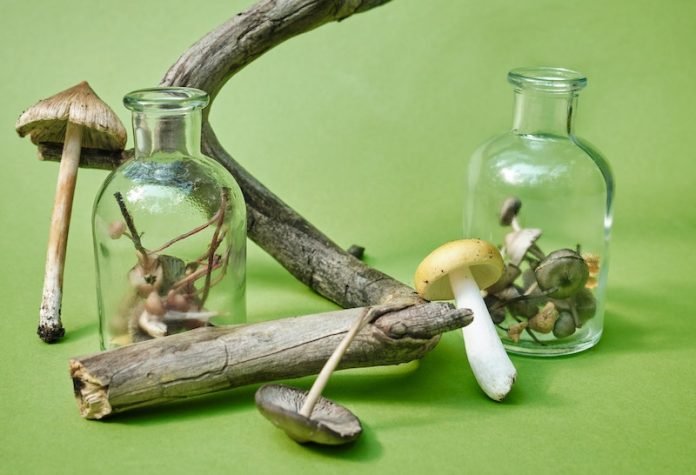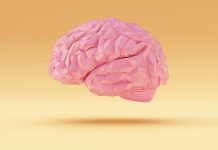
Mushrooms More Than Just a Delight
Imagine wandering through a forest and stumbling upon a cluster of enchanting, yet peculiar mushrooms.
For many indigenous communities and cultures throughout history, these weren’t just odd fungi – they were a sacred gateway to deeper understanding and spiritual experiences.
Known widely as “magic mushrooms,” due to their psychedelic properties, these fungi contain a compound known as psilocybin that can induce powerful, mind-altering experiences.
But what if, instead of a full-blown journey, a tiny, almost imperceptible amount could offer substantial benefits?
This is the idea behind a practice known as microdosing, a concept that has slowly seeped from counterculture into the mainstream, particularly among high-stress work environments like Silicon Valley.
As whispers of its potential mental health benefits circulated, scientists have begun to turn their attention to understand the mechanisms and validate the efficacy of this practice, hoping to unravel the mystery of how so small a dose can have such notable impacts on wellbeing.
From High Trips to Tiny Sips: The Shift Towards Microdosing
While microdosing psilocybin and other psychedelics has become somewhat of a secret among those seeking an edge in the competitive worlds of technology and business, its roots extend far deeper.
Indigenous peoples have utilized psychedelics for millennia, seeking wisdom from the profound experiences these substances can facilitate.
Fast forward to the 1950s and 60s, and psychedelics like LSD and psilocybin mushrooms were being investigated for their potential to treat mental health conditions. However, sociopolitical factors and the subsequent war on drugs put a halt to this line of inquiry.
Today, as perspectives shift, scientists are rekindling this curiosity, exploring not just high-dose experiences, but also the subtler, more sustainable practice of microdosing.
This involves taking roughly 1/10th of the dose that would induce a full psychedelic experience, navigating daily life as usual, but with a purported added layer of clarity, creativity, and emotional equilibrium.
Despite numerous anecdotal accounts of its efficacy, the scientific validation of these claims has been scarce – until now.
In a study conducted at the University of Southern Denmark, Associate Professor Mikael Palner and Ph.D. student Kat Kiilerich sought to delve into the potential benefits and risks of this practice, opting to study its impact on rats as a preliminary step towards understanding its potential implications for humans.
A Tiny Dose with Big Implications: What the Research Reveals
Within the quietude of the laboratory, rats were administered small, carefully measured doses of psilocybin, while scientists keenly observed any changes or impacts.
Remarkably, the little creatures showcased not just a tolerance for these doses but demonstrated a heartening resilience against stress and a notable decrease in compulsive behaviors, behaviors that, in humans, can often translate to anxiety and obsessive-compulsive disorder (OCD).
Moreover, upon peeking into the intricate workings of their brains, the researchers found an increase in connections to a particular area known as the thalamus.
Acting somewhat like a switchboard, the thalamus determines what information gets attention and priority in our minds.
This enhanced connectivity could potentially offer an explanation as to why individuals who practice microdosing report elevated mood and improved focus.
The Road Ahead: Cautious Optimism and Continued Exploration
This research isn’t just a triumph for the advocates of microdosing; it’s a beacon of possibility for future mental health treatment strategies.
With mental health challenges surging globally, and traditional treatment methods often falling short, innovative approaches are not just welcomed, they are necessary.
However, the path forward is not without its hurdles. Ethical considerations, precise dosing parameters, and a comprehensive understanding of long-term impacts are paramount as we navigate the delicate landscape of psychedelic-assisted treatment.
Nonetheless, this investigation serves as a seminal stepping stone, embarking upon a journey that intertwines ancestral wisdom with modern scientific inquiry, potentially heralding a future where mental well-being is not just a hope but a tangible, accessible reality.
With continued research, meticulous analysis, and mindful application, the tiny, often overlooked mushroom might just sprout into a revolution of mental health care, weaving a tapestry that honors the rich history and profound potential of psychedelics in fostering well-being, creativity, and holistic health.
This narration brings together historical aspects, cultural narratives, and scientific inquiry to present a comprehensive overview, aiming to be accessible and engaging for a broad readership, steering clear of scientific jargon, and focusing on a story-telling approach.
If you care about mental health, please read studies about 6 foods you can eat to improve mental health, and B vitamins could help prevent depression and anxiety.
For more information about health, please see recent studies about drug for mental health that may harm the brain, and results showing this therapy more effective than ketamine in treating severe depression.
The research findings can be found in Molecular Psychiatry.
Follow us on Twitter for more articles about this topic.
Copyright © 2023 Knowridge Science Report. All rights reserved.



